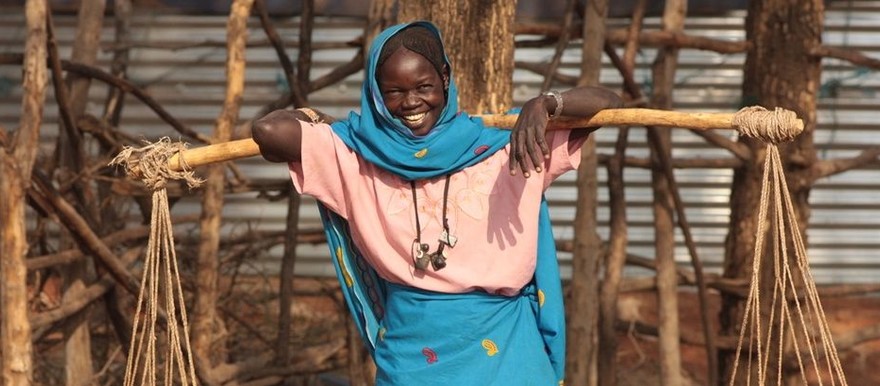The water ‘shortage’ reported at Yusuf Batil refugee camp was caused by reduced water output at tap stands owing to fuel rationing, according to a non-governmental humanitarian organization.
Yusuf Batil hosts refugees from Blue Nile, the border state of Sudan where a rebellion broke out in 2011. Overall nearly 123,000 refugees are living in Maban County, including 39,000 at Yusuf Batil.
Refugees earlier this week complained of lack of water in the camp, telling Radio Tamazuj there were long queues at water points.
Medair, a humanitarian organization, yesterday clarified that fuel rationing had temporarily caused the NGO to deliberately limit the timings at which tap stands were open. There was also a problem of lack of water at one or more tap stands, which caused longer queues at those still functioning.
“A few of the tap stands got cut off, so others were very busy. Those problems have been addressed now, they are solved and everything is back to normal, ” said Wendy van Amerongen, a field communications officer for Medair.
She also announced on Friday that the rationing has since ended and “people can take the average of what they were taking before the fuel rationing.”
The humanitarian officer also reported that the camp sheikhs had been advised of the need for the rationing in a meeting with NGOs working in the camp. “The sheikhs were informed that due to the insecurity/conflict, the fuel supply chain was limited,” she said.
“The sheikhs were supportive of the reduction in water output and spread the message that people had to be careful with the water and preserve it, don’t waste it. And that the hours were limited that the tap stands were working,” added van Amerongen.
Prior to the rationing it was estimated that the average amount of water a person took daily was 23 litres, and that rationing would reduce that amount to 15-20 litres instead.
Recent improvements in the security situation have allowed more aid workers to come back to the state capital Malakal as well as other towns. However, an opposition commander in Upper Nile, General Gathoth Gatkouth, on Wednesday expressed reservations about the recent ceasefire accord, raising further questions as to the stability of the situation in the state.
Photos: Women collecting water at tap stands in Yusuf Batil Camp, 7 February 2014 (Medair/Wendy van Amerongen)



